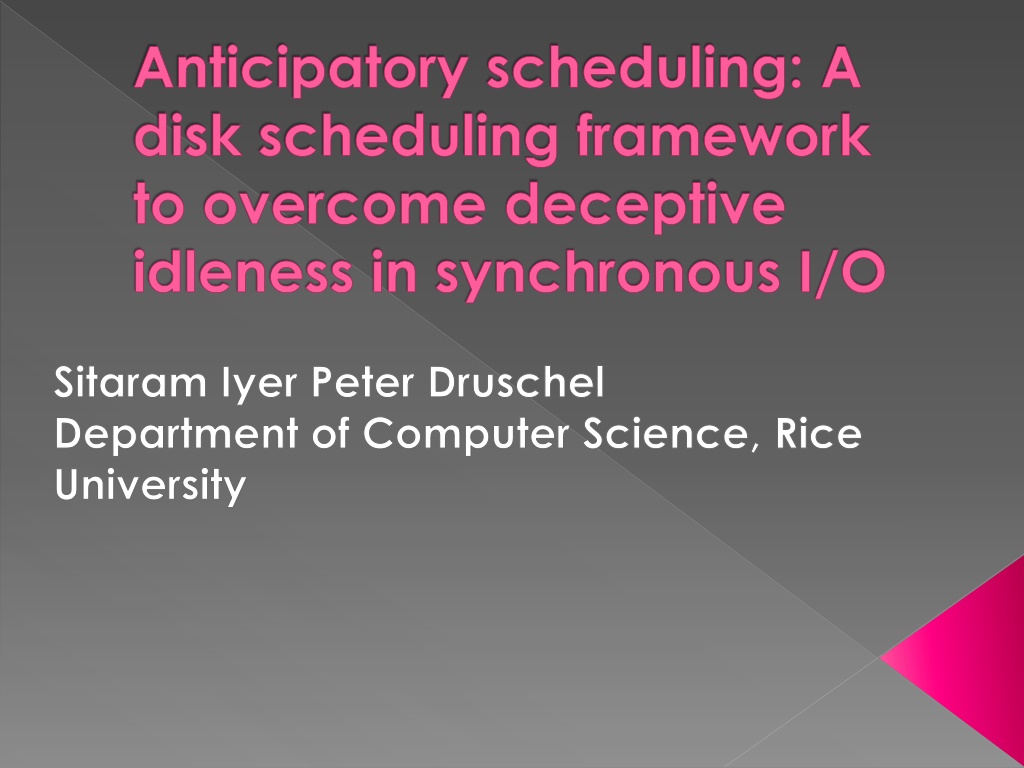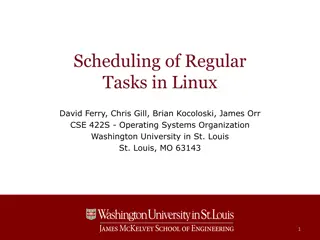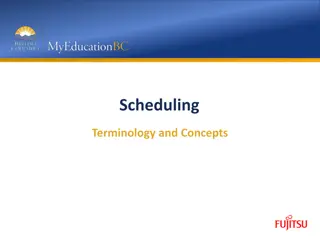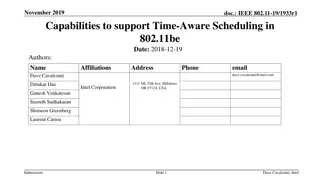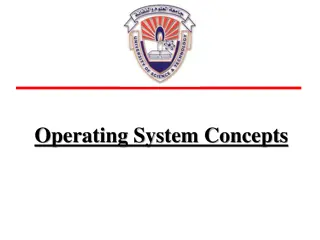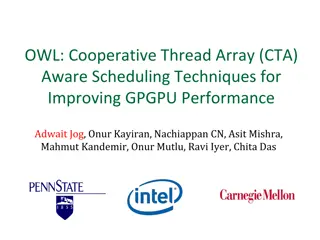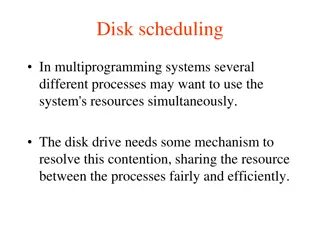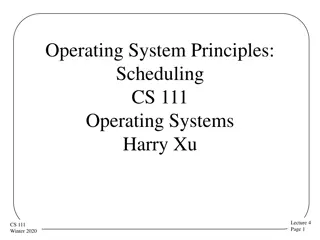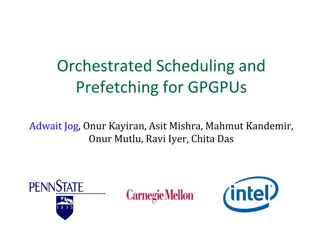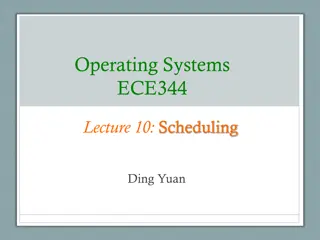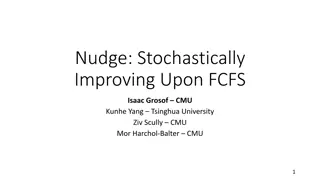Overcoming Deceptive Idleness with Anticipatory Scheduling
Addressing the issue of deceptive idleness in disk scheduling by implementing an anticipatory scheduling framework that leverages prefetching and anticipation core logic. This framework enhances the efficiency of handling synchronous I/O processes to prevent premature decision-making by the scheduler. By incorporating waiting mechanisms and an anticipation heuristic, the system optimizes disk request processing, ensuring timely and appropriate responses to varying workloads.
Download Presentation

Please find below an Image/Link to download the presentation.
The content on the website is provided AS IS for your information and personal use only. It may not be sold, licensed, or shared on other websites without obtaining consent from the author. Download presentation by click this link. If you encounter any issues during the download, it is possible that the publisher has removed the file from their server.
E N D
Presentation Transcript
Anticipatory scheduling: A disk scheduling framework to overcome deceptive idleness in synchronous I/O Sitaram Iyer Peter Druschel Department of Computer Science, Rice University
Whats the problem? Deceptive Idleness Processes issuing disk requests synchronously Each process issues a new request shortly after its previous request has finished. Scheduler forced to make a decision too early, Assumes that the process issuing the last request has momentarily no further disk requests Selects a request from some other process Incapable of consecutively servicing more than one request from any process.
Solution: Prefetching ? An increasing trend in modern disk- intensive applications issue non-sequential disk requests. nonetheless possess spatial locality has limited utility in these cases
ANTICIPATORY SCHEDULING wrapping given disk scheduling policy in a non-work-conserving anticipatory scheduling framework.
Anticipation Core Anticipation core implements the generic logic and timing mechanisms for waiting relies on the anticipation heuristic to decide if and how long to wait
Anticipation Core traditional work-conserving scheduler has two states: idle and busy forms a wrapper around this traditional scheduler. instead of dequeuing and dispatching immediately, passes this request to the anticipation heuristic for evaluation. zero : no wait positive integer : waiting period in microseconds Sets a timer and enters the new wait state
Anticipation Core Case 1 : timeout expires before the arrival of any new request Case 2 : Arrival of new requests during the waiting period added to the pool. asks the scheduler to select a new candidate request from the pool, and asks the heuristic to evaluate this candidate.
Improvements The Apache webserver:29% and 71% more throughput The Andrew file system benchmark runs faster by 8%, due to a speedup of 54% in its read-intensive phase. TPC-B database benchmark : improvements between 2% and 60%.
EXPERIMENTAL EVALUATION Code and platform : FreeBSD-4.3 kernel Schedulers: All experiments with a seek reducing scheduler use Aged- SPTF(bounded per-request latency of 1 second) Metrics : throughput in MB/s and disk utilization(percentage of real time spent servicing requests)
EXPERIMENTAL EVALUATION Two processes rapidly issue 64 KB disk read requests into separate 1 GB files sequential (seq), or target every alternate 64 KB chunk (alter) or random.
EXPERIMENTAL EVALUATION read system call, FreeBSD 4.3 issues asynchronous prefetch requests if the access pattern is detected to be sequential on disk. map their file into memory using mmap, these are not subject to asynchronous prefetch
Symmetric Process After 8 ms : Thinktime will be comparable to request service time
Asymmetric Process One quick process one (slow) process waits for duration t between requests
The Andrew Filesystem Benchmark capture a typical file server workload in a software development environment. Consists of k clients, each performing five phases:
The Apache Webserver multi-process architecture to service requests from clients. larger 71% improvement for mmap 29% improvement in throughput
The TPC-B database benchmark exercises a database system on simple, random, update-intensive operations into a large database, and is intended to reflect typical bank transactions
Real Hardware 800MHz Athlon system, with a 15,000 rpm Seagate Cheetah ST318451LW SCSI-3 disk and an Adaptec 19160B Ultra160 controller. Specically, repeat two experiments: the microbenchmark with different access patterns Apache webserver experiment
